You’ve just been to the gorgeous Taj Mahal and feel full of life and satisfied. Why would you not? First, you went to the Agra Fort in the sweltering heat and were able to bask in all of its red-sandstone beauty. You didn’t really know much about it before the start of the trip, but walking beneath its great arches and delving into its history with your fourteen new friends and tour guide would have been enough of an adventure. Then you move on to the Taj Mahal. You would think that after seeing it hundreds of times in books and online, you would be prepared for its beauty, but you would be wrong. The fast-approaching sunset and moonrise lend a new atmosphere, giving the white marble a warm golden glow. It’s difficult to process the magical feeling of seeing the Taj Mahal framed by Darwaza-i-Rauza, the ‘Great Gate’, “like a painting”, has been the best way you have described it thus far. You may not have thought about paradise before, but it makes sense when it’s mentioned that the Taj Mahal was modelled to look like paradise.
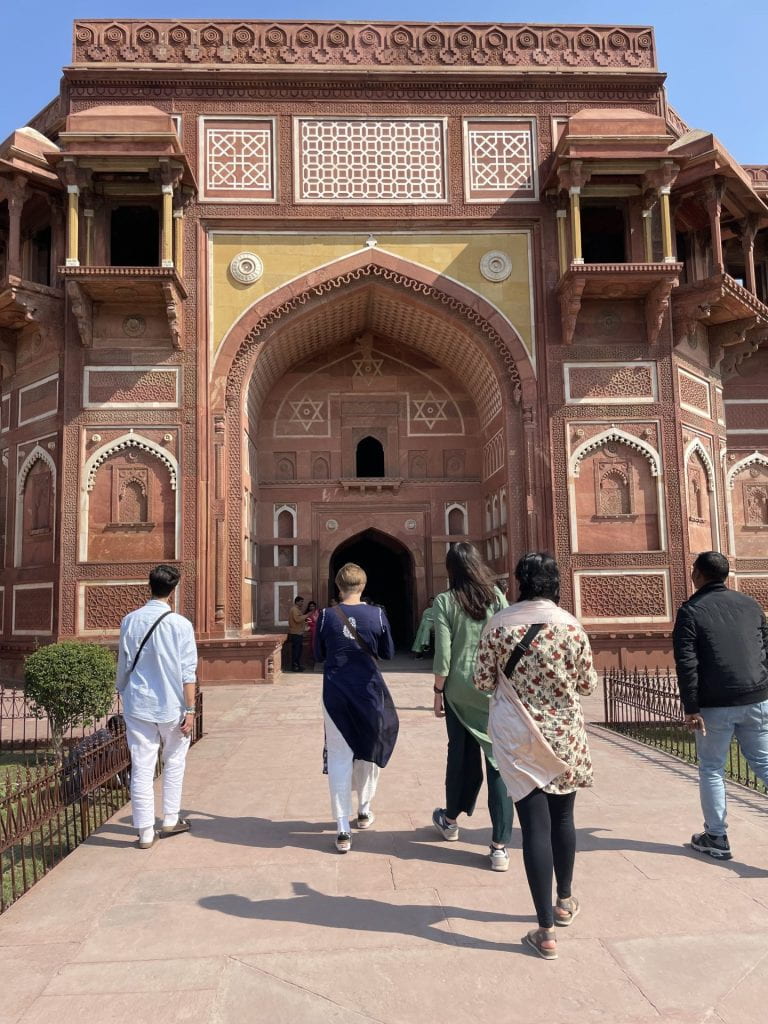

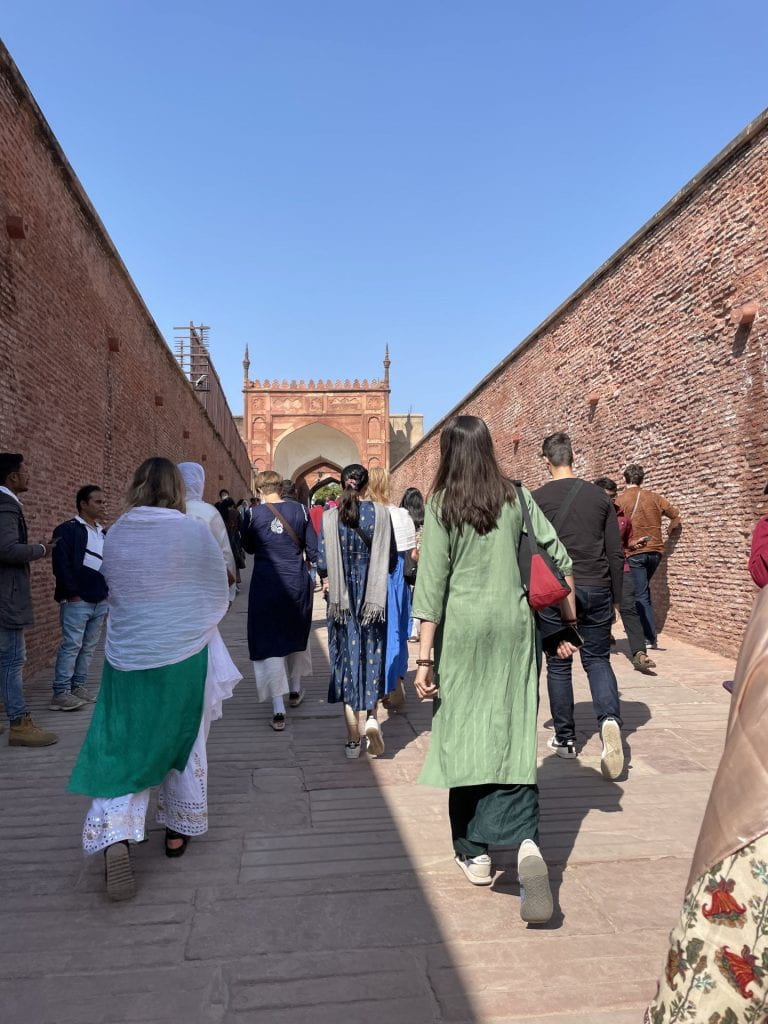
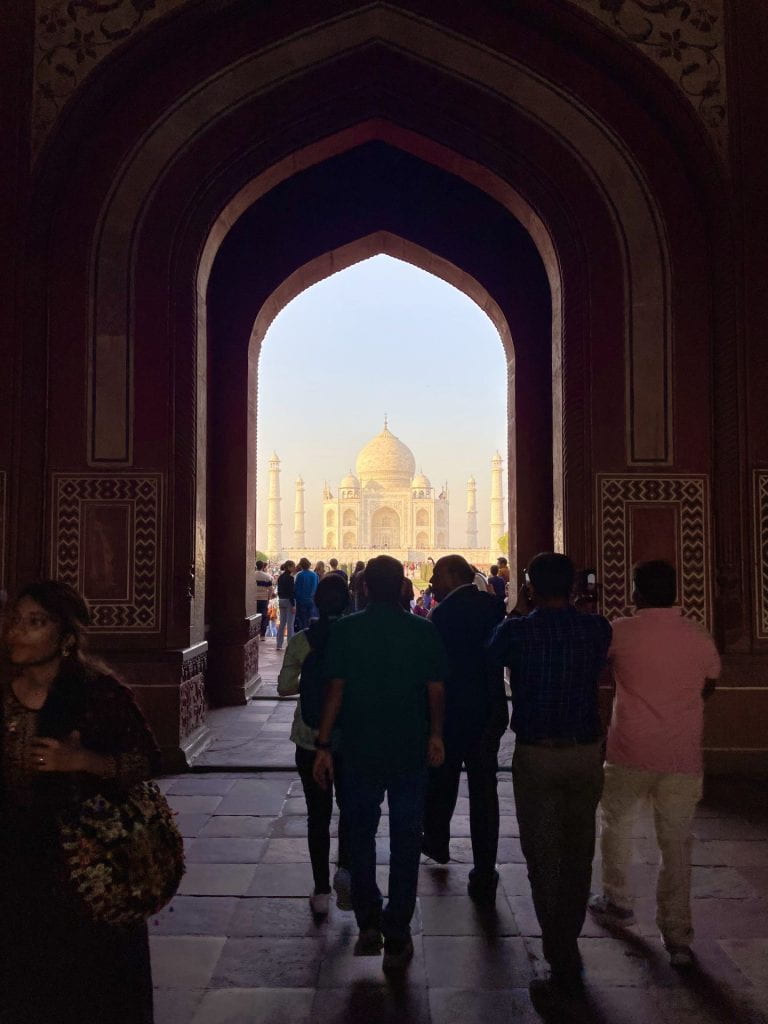
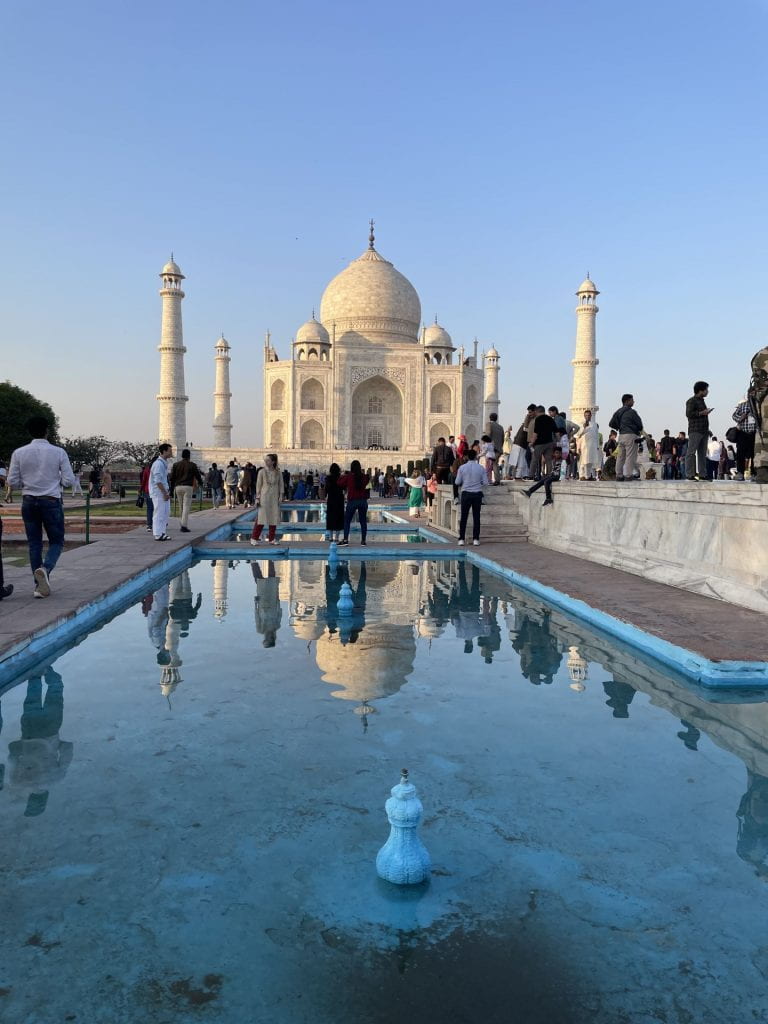
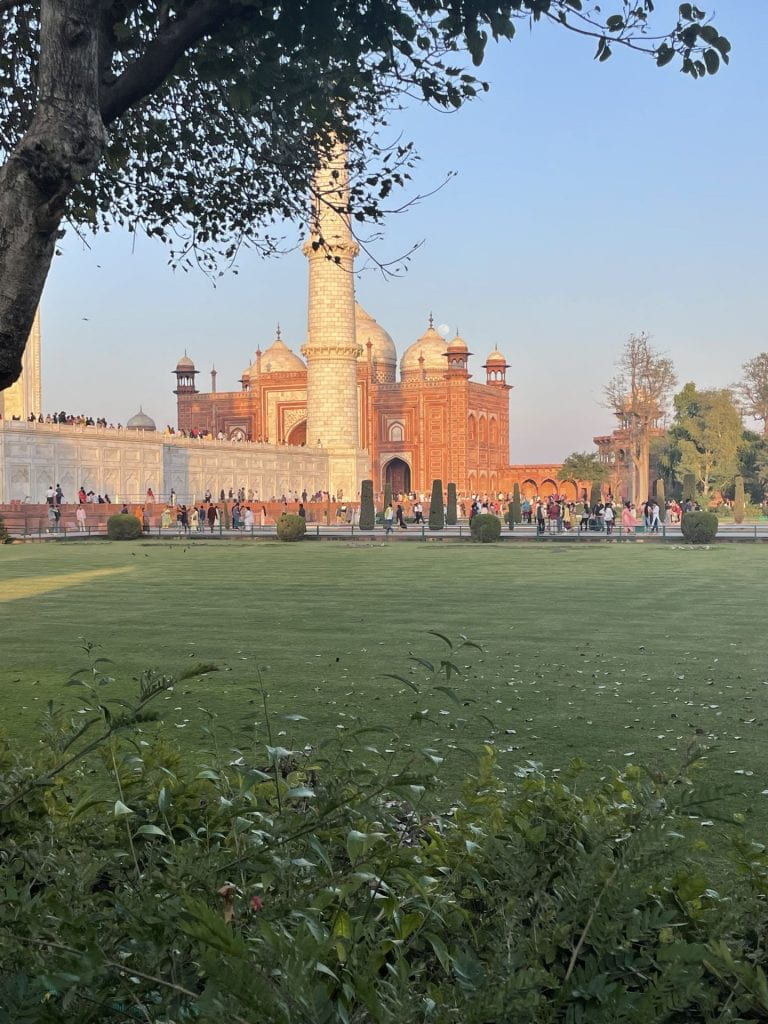
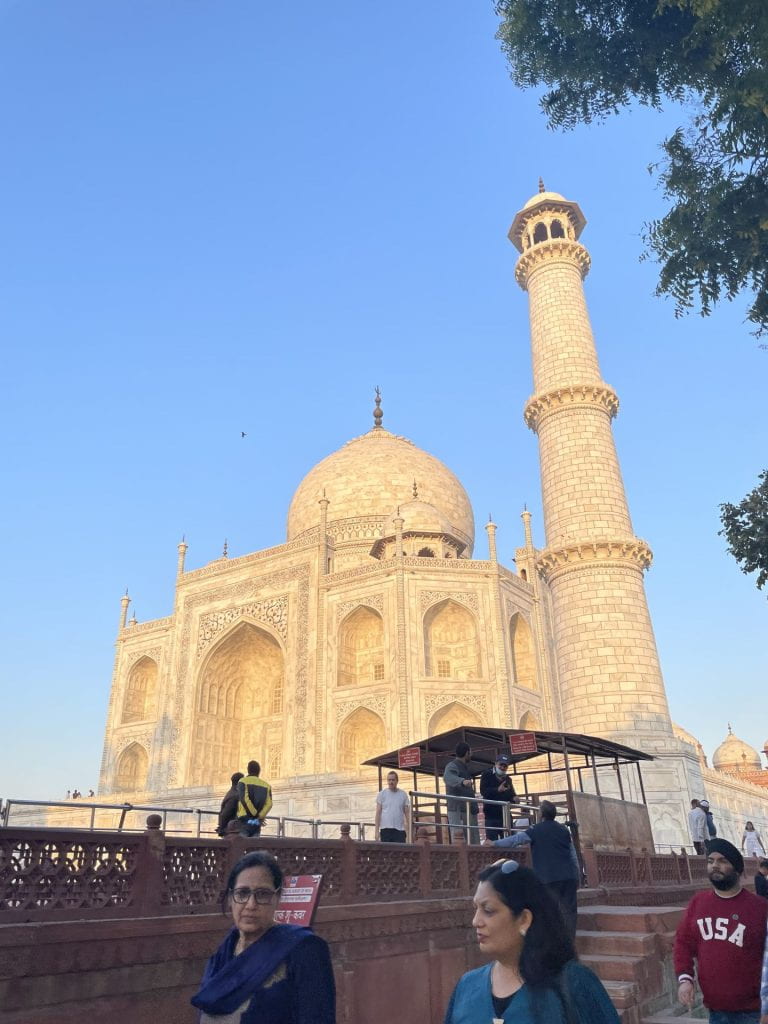
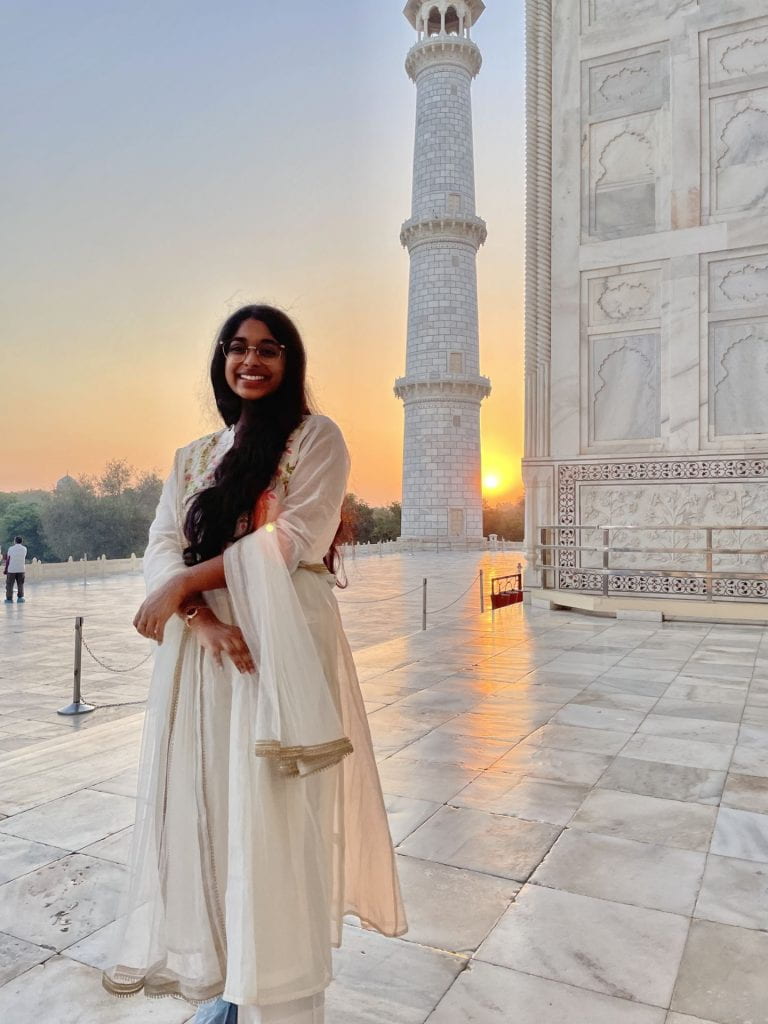
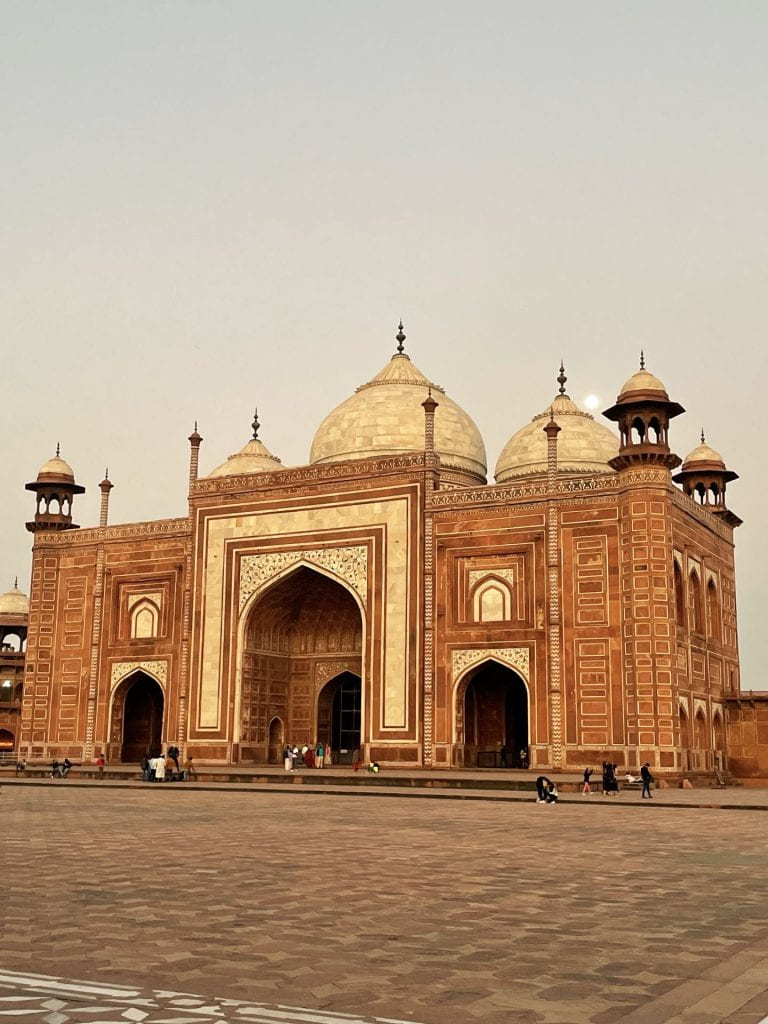
So after spending hours amongst extraordinary history and magnificence, you shuffle back into your van, tired but buzzing from the adrenaline. The music blasting on your five-hour road trip from Agra to New Delhi restarts, and everyone settles in for the ride back to your hotel. You look at the window in the van, and at first you see a reflection of yourself and the rest of the group. Everyone is tired, but there are smiles all around, and people are chattering away or snuggling into their seats, ready for a short nap. Everything in the van feels safe, and there’s a feeling of contentment and peace. The longer you look out of the window, the more you see past your reflection, and you can start to see what’s happening all around you outside, on the streets. There you see families settling in for the night, huddled under a tarp in informal urban settlements, trying to escape the cold. Just like in Mumbai, there are so many people crowded into the tiniest bit of land, which makes you think about how New Zealand’s population is only a quarter of Mumbai’s!?
A focal point of our conversations throughout the whole trip, within and out of Mumbai, was how lucky we are. And we truly are. We are so wonderfully lucky to have safe and clean accommodation, an incredible support system in the whānau we’ve made for ourselves, food, clothing, shelter, and safe transport. Nothing quite makes you reflect on your privilege until you’re faced with the uncomfortable truth of what it’s like to live without those. Looking outside of our cushy, safe van, seeing the reality of those around you is confronting. Children would run up to us in the van to try to sell us things, some families would be getting ready to sleep on the streets despite the chilliness, while others live in informal settlements in spaces that most of us wouldn’t think to call a room.
One of our mantras in our preparation for our trip to Agra and New Delhi was that ‘you have to pay for safety’. We (being our PMSA group), are fortunate because we can pay for our safety. And we’re fortunate that we can. But what if you can’t? This all just falls back to our privilege. A thought that was brought up by the rest of the group, namely, ‘the lottery of life’ is what comes to mind as I write this. It’s difficult to wrap my head around the fact that where you are born and the family you are born into determines a lot regarding the privilege you hold in life, because privilege is such a powerful thing. Your privilege generally indicates the opportunities you get and how easily you can overcome life’s challenges. This isn’t always true, of course, and you can move up or down in life based on other things such as education, but still, it’s hard to overlook the significance that your position at birth has on the rest of your life.
Remembering privilege doesn’t look like mansions and fancy cars is important. Privilege looks like being able to walk down a street feeling safe, knowing you have a bed to fall into at the end of the day, having a loving network around you, and not having to live in constant concern about when your next meal will be. As people lucky enough to be born with privilege or have these privileges later in life, it’s important that we’re mindful that life isn’t necessarily so kind to everyone. Not having a saviour complex, but knowing your privileges and reflecting on those can give you a broader worldview, help you better understand different people’s perspectives, and help you put some more good out into the world!
Until we meet again! Stay safe and ka kite anō!
